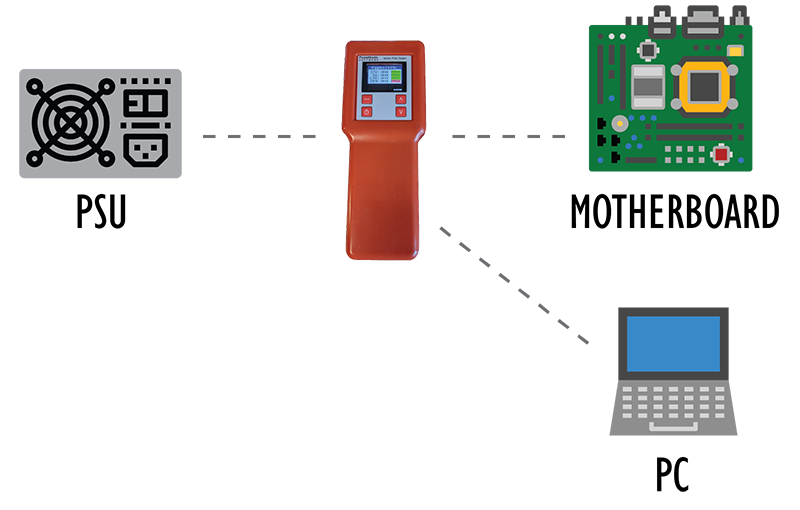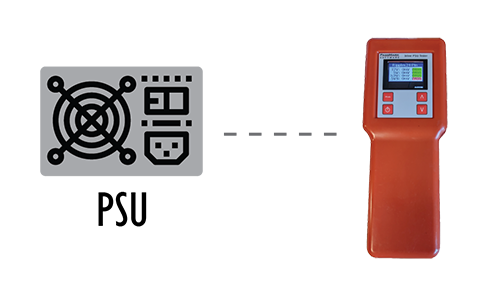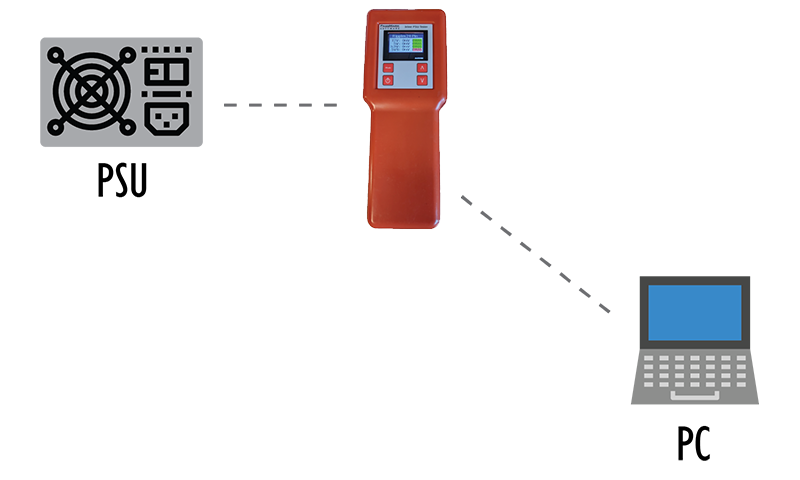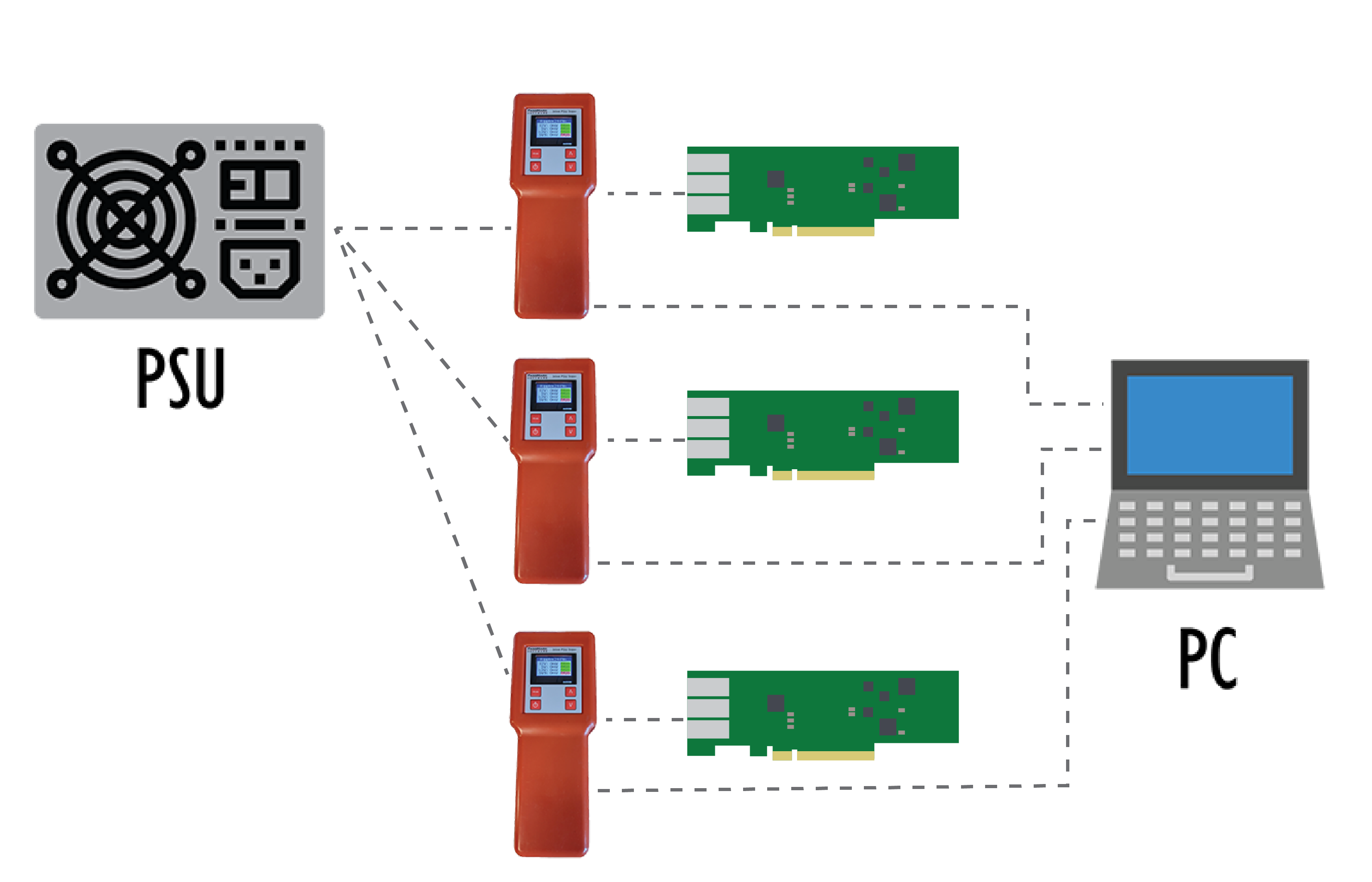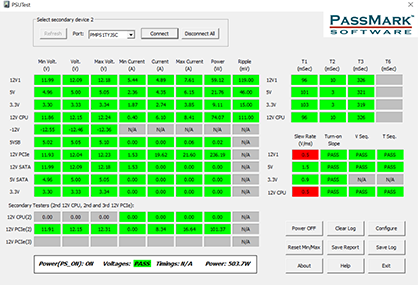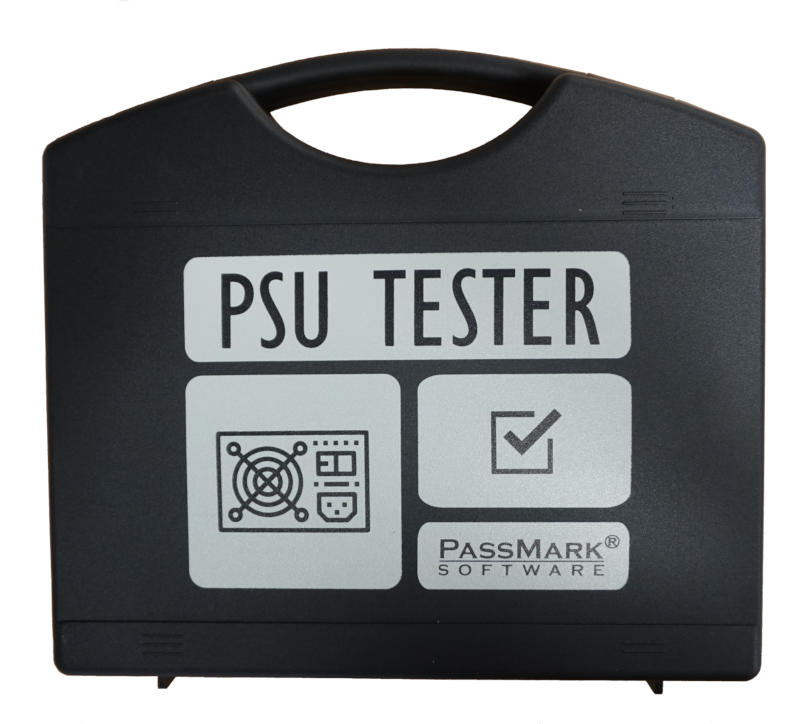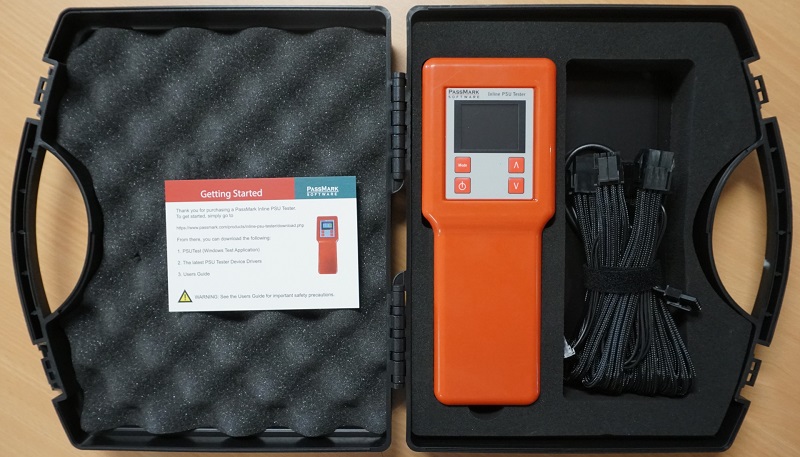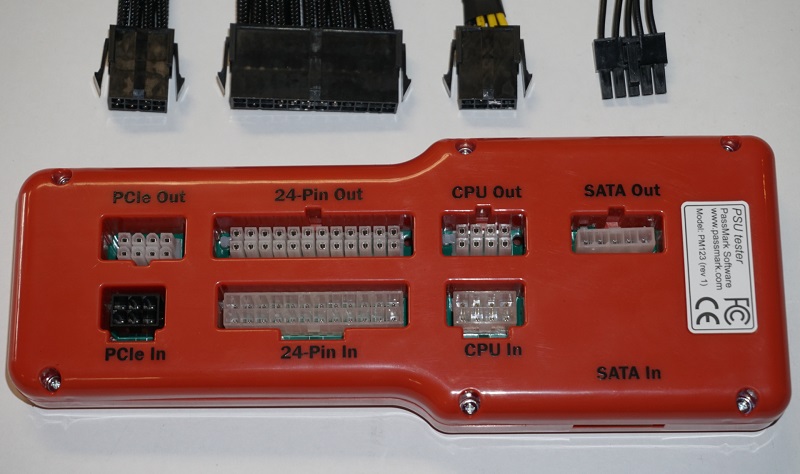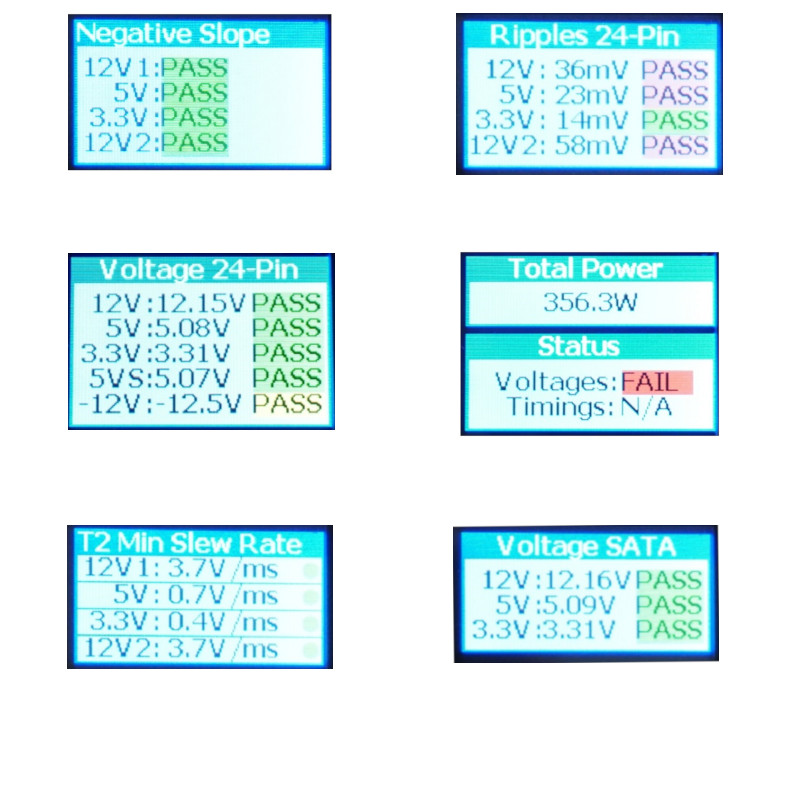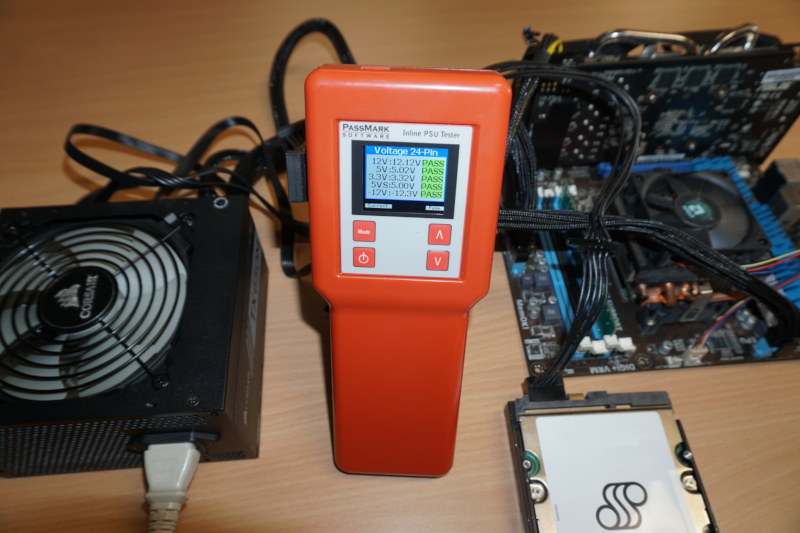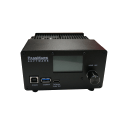Inline PSU Tester
Diagnose and troubleshoot your desktop PC power supply.
- The most comprehensive PSU tester on the market
- Check power supply voltages are within the approved limits.
- Record the minimum and maximum of voltage and current for each rail.
- Measure the exact power drawn from each rail.
- Measure the total power drawn from the power supply.
- Test for ripple on main voltage rails
- Measure and check Power-on Time (T1), Rise Time (T2), PWR_OK delay (T3), and Power-down warning (T6) and check them against the specification.
- Measure the minimum slew rate on main voltage rails during power up
- Measure the turn-on slope of main voltage rails is positive during power up
- Check power sequencing
Why test your PSU?
A failing power supply can often be at the root of problems you might not expect, like random lockups, spontaneous reboots, and even some serious error messages
The PassMark PSU Tester is designed to quickly and comprehensively test a PC power supply.
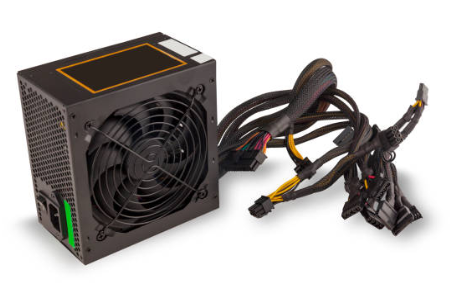
Five operating modes
Includes monitoring software for Windows
Connect the PSU Tester to your PC via the USB connection and you can monitor the PSU statistics, including voltage, current, power, ripple and timing for each voltage rail.
Measurements are clearly displayed with Green background when the value is within acceptable range, and Red background when the value is outside the valid range.
Up to three testers can be monitored from one instance of the software, and all data can be exported to a text file report.
Most comprehensive PSU Tester on the market
PassMark's Inline PSU Tester is the most extensive and complete diagnostic utility for PC ATX Power Supply Units on the market. Here's how it compares to other PSU testers.
Generic PSU Tester |
PassMark Inline PSU Tester |
|
|---|---|---|
| Measures Voltage | ||
| Measures Current and Power | ||
| Test for ripple on main voltage rails | ||
| Measure and verify slew rate (ramp speed) | ||
| Verifies Timings (T1, T2, T3, T6) | ||
| Check turn-on slope (smooth power up) | ||
| Check Power Sequencing | ||
| Standalone mode (no motherboard connection) | ||
| Inline mode (tests PSU under full load, connected to motherboard) | ||
| USB connection (for monitoring) | ||
| PC (Windows) monitoring software | ||
| Cables supplied | ||
| Comprehensive Users Guide | ||
| Technical Support | ||
| Support Multiple GPUs* |
*With multiple testers.
Product Gallery
Inline PSU Tester Intro Video
This is a quick introductory video on our Inline PSU Tester. Understand how you can troubleshoot and diagnose your PSU quickly, safely and with confidence.
Quickly check if supply voltages are within the approved limits, measure and check timings such as Power-On Time and Power_OK Delay and test 'inline' while connected to your motherboard.
Right-click to download in MP4 format. 27MBProduct Demo Video
This is a full overview of our Inline PSU Tester. Understand our latest hardware product, exactly what the tester has been designed to test, and see a demo of the video across the different usage configurations.
We cover topics such as product features, standalone and inline configuration demonstrations plus an insight into the monitoring software.
Safety Precautions
Safety should be your primary concern during a power supply test with a PSU tester
Remove anything conductive from your hands (e.g. metal rings, watches, or bracelets) before testing a PSU or working inside your computer.
Only use the original cables that comes with the tester. The PCIe cable that comes with the tester, is not a standard cable and is custom-made for the tester. Using other cables could lead to short circuit between the voltage rails.
Make sure all the cables are fully inserted. A loose connection introduces more series resistance which can lead to melting of the wires under high load.


Always have someone monitor the testing in case the device under test suddenly fails. Do not start a test and walk away.
See smoke coming from the power supply or inside the case or smell a burning or solder scent, unplug the computer from the wall. Do not touch the PSU or the PSU Tester in such circumstances.
If the PSU Tester is inline (connected to both power supply and motherboard), do not power up using the keypad. Instead, use the PC power button.


